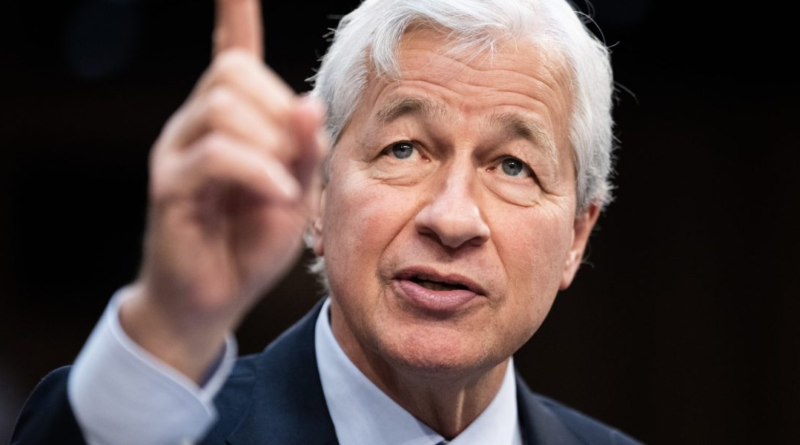Jamie Dimon isn’t sold on his billionaire peers’ fears about commercial real estate crisis: ‘most people will be able to muddle through this’
JPMorgan Chase CEO Jamie Dimon says that concerns about a “domino effect” in the commercial real estate sector are overblown, and that a surge in defaults is merely regression to the mean—going against many of his billionaire peers, who have sounded the alarm about what one of them called a “very, very ugly market.”
Between all-time-high vacancy rates generated by the rise of remote work and the untimely maturity of 10-year office loans signed in the aftermath of the Great Recession, commercial property owners are fighting to stay above water. Watchers have drawn comparisons with the 2008 housing collapse, which sent shockwaves throughout the economy around the world.
In New York City and other major metro areas, economists have warned of an “urban doom loop” that could see falling commercial property values cut into municipal tax revenues, resulting in cuts to key social services that would only send commercial property values plummeting further. And small regional banks’ relatively high exposure to commercial properties has raised concerns about structural weakness in the financial system if the beleaguered real estate sector causes another round of bank defaults.
But speaking to CNBC at JPMorgan’s Global High Yield & Leveraged Finance Conference in Miami Beach Monday, the dean of Wall Street CEOs downplayed worries about the sector.
“Put the commercial [property sector] in perspective with the consumer [housing market,]” said Dimon. “The consumer markets are far bigger. So what happened in ’07 or ’08, this isn’t that kind of thing. And a lot of these [commercial] owners … can handle what you call ‘stress.’”
A 2022 Zillow estimate put the value of the national housing market at $43.4 trillion—over double the size of the $20.7 trillion commercial sector, per a 2021 NareIt report.
Dimon said that if we do see a recession like the big one in 2008, though, the commercial real estate downturn could have a much greater impact. A recession would threaten to cut off the money spigot keeping property owners afloat, risking a wave of defaults.
“If you have a recession, yes, it’ll get worse. If we don’t have a recession, I think most people will be able to muddle through this—refinance, put more equity in,” said Dimon.
Dimon’s been cagey about making any recession predictions himself. Back in 2022, he spooked investors by warning of an economic “hurricane” spurred by rising interest rates. Dimon’s backed off since, though: he warned that rising interest rates “might” lead to a recession last November, before cautiously saying the economy was looking “so far, so good” yesterday—but he added that “markets can change their mind pretty quickly.” (For its part, JPMorgan Chase staff economists predicted there would be no recession in 2024 in the bank’s annual year ahead outlook report last month.)
Defaults are already worryingly high. A 2023 NBER paper found that a full 44% of commercial properties are now worth less than their owners’ debt balances. But Dimon said that investors concerned about the uptick should take the long view and consider the wave of defaults in the context of the yearslong period of low-to-zero interest rates, when owners had easy access to cheap cash and were highly protected from defaulting on their loans.
“When you talk about defaults being higher, part of that’s just a normalization process,” said Dimon. “They were so low for so long … things go up, but they’re not at a crisis level. They’re just kind of going [back] to normal.”
Industry watchers have shared concerns about the commercial market’s shaky financial backing. Banks own about half of the $6 trillion in commercial real estate debt in the United States—but of that half, 70% is owned by small, regional banks that could lack the capital to weather a heavy market downturn, according to Columbia economics professor Stijn Van Nieuwerburgh.
For example, New York Community Bank stock plummeted by almost two-thirds earlier this month because of investor concerns about its commercial real estate portfolio, which it acquired when it bought out the failed Signature Bank last year. Other regional banks around the country have similar levels of exposure. But Dimon said that if the broader economy remains stable, any effects on banks with big commercial real estate portfolios would be isolated, not structural.
“As long as the economy stays like this, [it] will be more of a Whac-A-Mole. There should be no domino effect,” said Dimon.




